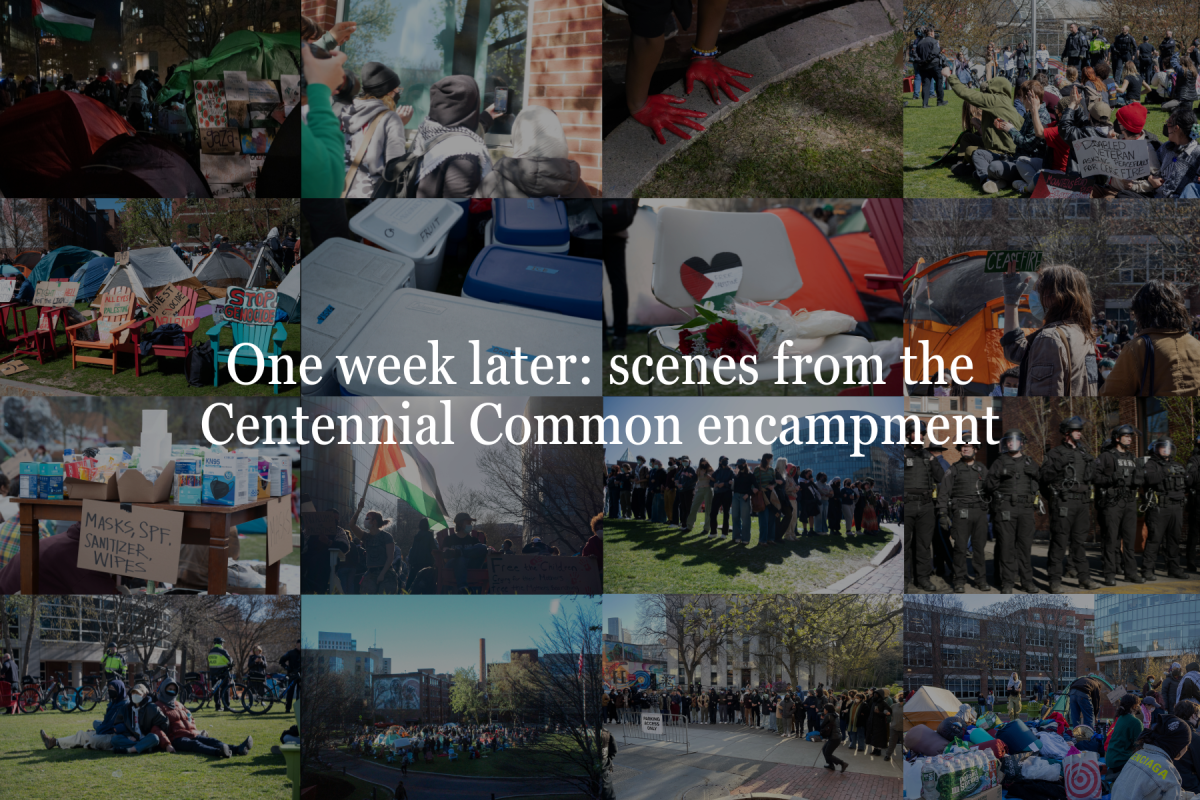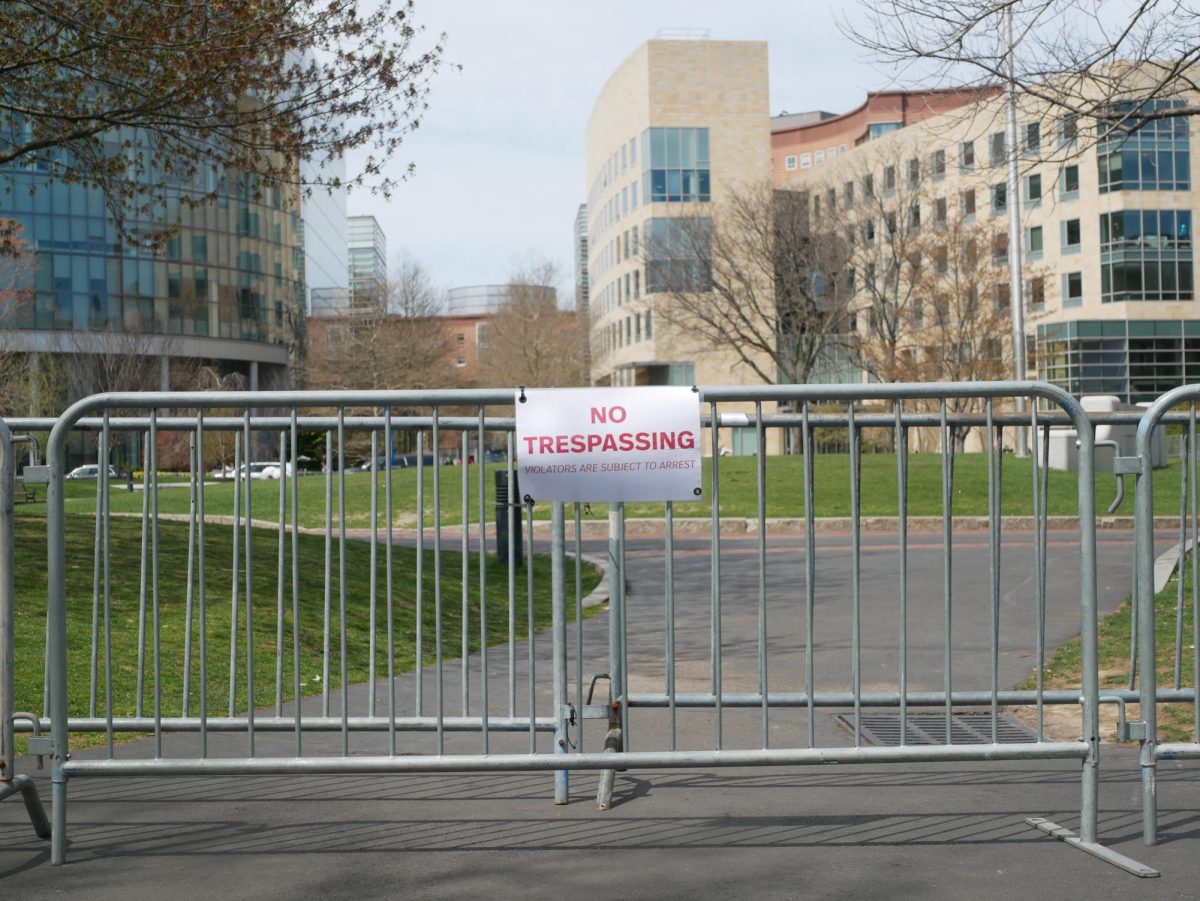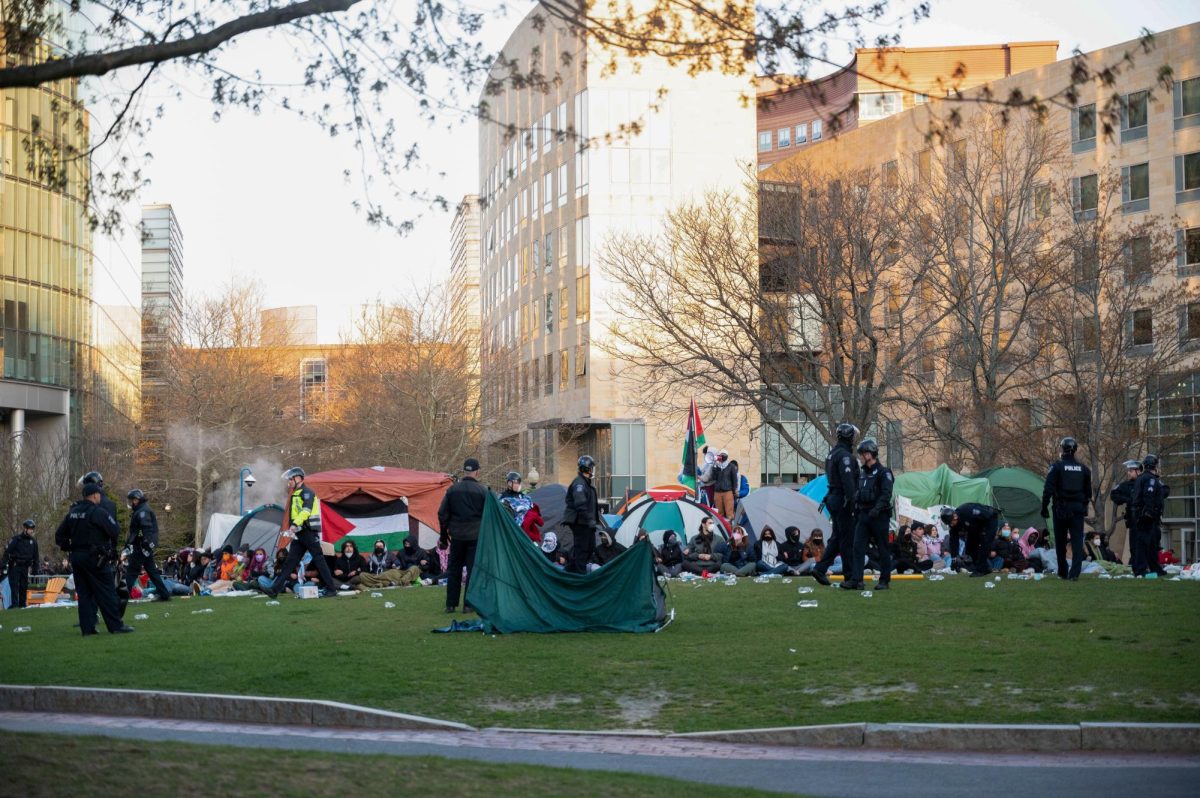By Alana B. Salzberg
For most adolescents, college is a time to be on their own, form an identity separate from their parents and experience new things such as relationships.
Living away from home allows dating to become more intimate while maturity permits couples to plan toward the future. As a result to the multitude of fresh faces on campus, the dating pool expands drastically in the college town of Boston. Since couples tend to take their relationships more seriously at the college level, the thought of marriage often comes up. Ilana Segall, 21, and Matt Vickeroy, 20, were introduced by mutual friends and have been dating for four months. She is a Reform Jew, and he is Roman Catholic.
Needless to say, their religious upbringings were different. Segall and Vickeroy are one of many couples involved in an interfaith relationship. Like all relationships, inter-religious ones face their share of joy and heartbreak as it affects not only the couple, but those around it. They face issues that same-faith pairs never think of, such as what holidays to observe, deciding on a religion for future children and sometimes even the thought of converting to another religion.
“Some people want to date and marry within their religion to keep their faith going,” Hillel Director Beth Meltzer said. “Percentages of intermarried couples are so high, they feel like are [Jewish people] going to be around?”
Yet, not all Jewish teens active in Hillel choose to exclusively date within their faith, Meltzer said. She has been the director of the Hillel Foundation for five years and is most concerned with establishing a relaxed setting for students of all religious backgrounds. Others may simply decide to date within their faith to avoid obstacles with their partner, family and friends. For instance, a Jew who regularly attends Shabbat services on Friday night dating a Catholic who consistently goes to Church on Sunday morning may run into trouble finding time for one another during the weekend.
“The non-Jew might want to go to a concert on Friday night,” Meltzer said, “which could create a problem for the Jewish partner who typically goes to temple.”
Problems with friends may come about if the Jewish member of an interfaith couple starts to attend services less in order to be with their mate. Friends accustomed to being with one another during Shabbat may not understand and feel excluded, Meltzer said. Then, there is the issue of parents and the hopes they have for their children. Often times they have ideals of how their child should live their life separate from reality. Middler sociology major, Glenn Sperber, is Jewish and has been dating a non-Jew for more than a year.”My father always wanted me to date a Jewish girl,” Sperber said, “but as long as I’m happy with whomever I’m seeing, it’s no big deal.” Other parents want reinforcement in knowing their children will have successful marriages.
The Official Catholic Directory reports Catholics in interfaith marriages are more likely to divorce and less likely to attend Mass. As a result of this, the Catholic Church encourages parishioners to avert interfaith marriage through the teachings of youth ministry and commitment to the church.
“The truth is that, for most people, it’s the initial attraction, not religion that counts,” Father John Unni said. Father Unni was ordained in 1992, and is the Catholic chaplain on campus and the Pastor at St. Ann’s it’s on St. Stephen Street in Boston. He thinks that despite a parent’s hopes and expectations of how a child will live their life, it is ultimately the child’s choice. Sometimes parents accept this and realize their child is capable of finding happiness on their own.
“If my daughter wasn’t treated nicely, it wouldn’t matter what religion he was,” Director of Spiritual Life Michael Woodnick said in reference to his daughter dating.
Woodnick is representative of parents solely interested in the overall contentment their child finds within a relationship, by looking beyond religion. He oversees the multifaceted spiritual and religious resource center on campus, and believes that having a shared value system is most important in forming a relationship. “How we develop meaning in our lives doesn’t have to be religious,” Woodnick said.
The Spiritual Life program focuses on the importance of each person finding meaning in his or her life. The center serves two groups of people. First, it directs students yearning to keep the faith at school to a respective chaplain on campus. The program also provides a place of solace for students who are lacking a religious connection, but are strong in spirituality.
“Spirituality is how we extend love and care,” Woodnick said. “If you can do that within religion that’s good. If you can’t, that’s OK too.”
The probability of interfaith marriage escalates as the percentage of Catholics declines. For interfaith couples set on marriage, the discussion of conversion often comes up. Some people convert to please themselves, or, in other cases, to please their soon-to-be in-laws, which Cantor Buhr believes to be the case most of the time.
“First, people do it for themselves, then for their spouse,” Meltzer said. Yet, she can recount many situations in which parents played a large role. “I really love him, but my parents are really upset.”
For this reason, if the non-Jew is not deeply religious he or she often converts in order to unify their new family while simultaneously appeasing their old family. Temple Kehillath Israel conducts a conversion class that meets once a week for six months for people interested in converting to Judaism. While the class is a mixed group of men and women ages 25 and older, “it is mostly females getting married who enroll,” Buhr said. Buhr has been cantor at the conservative temple for nine months and has seen many women join the class to strengthen the bond between themselves and their fianc












